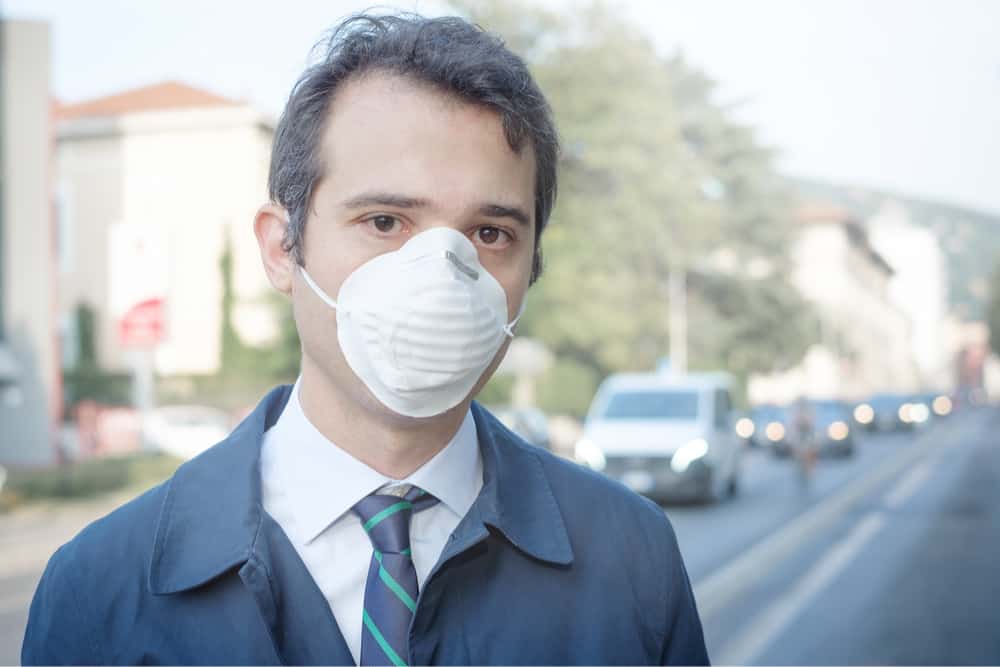Contents:
- Medical Video: The Grieving Process: Coping with Death
- How do you overcome the grief of someone who died of suicide?
- Will leave
- Face your feelings
- Don't mind what people say
- Share with others
- Look for professional help
- Keep yourself healthy
Medical Video: The Grieving Process: Coping with Death
Death is a life phenomenon that cannot be avoided. But maybe especially for some families and close relatives, facing the death of a loved one who died of suicide can leave a trail of scars that are so deep. It might even feel as if the pain and sadness you experience will never disappear. It is not easy to make peace with unexpected deaths and that should not have happened. ButYou must know that this pain is only temporary.Then, what can you and other close relatives do to grieve and accept the departure of the closest person who died suicidal?
How do you overcome the grief of someone who died of suicide?
Here are a few tips to help you deal with grief and losing someone who died of suicide.
Will leave
Whatever the cause, the loss of a loved one is difficult to describe. It feels as if a part of yourself is dead. Your life will change and so will your feelings. You may feel angry, disappointed, or guilty of his departure. What you feel is normal and it will take time to be able to regulate your emotions. To achieve peace of mind, the first step you must do is accept the fact that the person you love chooses to end his life and try to give it up.
Someone who decides to commit suicide generally has a problem and a certain reason for the action. Therefore, we will never know for sure what is the reason for suicide. You also have to accept gracefully if you will never know the answer to the departure of someone you love until anytime. Therefore, get rid of your curiosity to find out the reason, and start to be able to accept the reality, whatever the reality is as bitter.
Face your feelings
You must give yourself time to grieve. Give yourself time before returning to activity. You might feel guilty because it is as if you were going to continue living after his death. But for you to recover properly, you must acknowledge the pain. If not, you will only extend the grieving process.
If you feel sad, scared, angry, disappointed, or lonely, remind yourself again that these mixed emotions are a normal reaction to a sense of loss. May cry. Crying does not indicate that you are weak. Being honest with your true feelings can help you and the people around you.
Focus your time on grieving and trying to get back up. You should look for ways to channel your energy to something more positive. It can be by writing a journal related to your feelings, sharing your story with other people (spouse, friend, or relative), taking art classes, praying, meditating, or going to a place of worship. Sadness will never diminish if you keep covering it. The faster you deal with your feelings, the faster you will recover.
Don't mind what people say
Suicide still gets a negative stigma from the surrounding community. Many consider that suicide attempts are only a way for someone to exaggerate the problem in order to get attention. This is a big mistake. In full sanity, no one will attempt suicide. The desire to commit suicide is a serious symptom of a mental disorder that must be addressed immediately. A person will only commit suicide when all the ways he has done to solve the problem and get previous help have failed.
To help you recover quickly from a sense of loss, it's good to ignore what others say about his death. You will never know what is the reason for ending his life, but close your ears from the whispers of neighbors who try to guess or justify the reason behind the suicide. Don't let you be affected by the issues out there.
On the other hand, it is not good to avoid talking about him at all or avoid mentioning their names. You might think it would be better not to discuss it again, but, it's up to you to let others know how important the deceased (ah) is in your life.
Share with others
Facing the departure of loved ones who die of suicide can no doubt create shock. Not infrequently, the people left behind will be alone. It's okay to keep quiet to give your time to grieve, but don't totally distance yourself from family members and other close relatives.
Try to keep in touch with some friends and family members. They are people who can understand the suffering you experience. Therefore, sharing and talking with your partner about your feelings of grief is very important in reducing negative feelings. They also experience difficult times just like you. At the very least, you will be able to work hand in hand to get past this anxiety.
Affection, sharing and love are the main keys to rising from sadness. Keep your family close and be open to them. Because everyone has different ways of dealing with sadness, the lack of sharing and understanding each other's feelings can lead to conflict. Blaming other people for his departure also often occurs in this situation.
Look for professional help
You can not go through all the life events alone. If you feel overwhelmed and unable to face his death, you may seek help from a doctor or psychiatrist therapist. The grief that is left to drag on and untreated can cause complications such as depression, anxiety disorders, drug abuse, and other health problems.
Professional help is especially important if you are depressed after the departure of someone who died of suicide. Because, suicide can be "contagious". Exposure to other people who commit suicide can increase the risk of those around them also wanting to commit suicide.
Keep yourself healthy
Don't forget your health. Your child certainly wants you to take care of yourself. Get enough rest, eat healthy and active foods will make you healthy. This will also help improve the mood so that you have a more positive outlook on life. How can you cure your mental crisis if you can't even stand on your own feet, right?
If you ask yourself after losing a loved one who died of suicide, "Will life return to goodness?" The answer is yes, it will definitely return. Grief is a journey. The pain you feel now will eventually begin to diminish over time. You will never forget him, but you also need to continue to live your own life along with precious memories from your loved ones.












